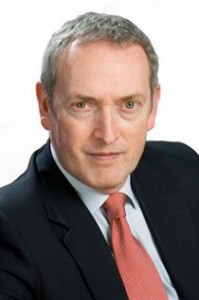John Hutton – 2004 Speech to the National Association of Primary Care conference
Below is the text of the speech made by John Hutton, the then Minister of State for Health, on 6 October 2004.
First of all, I’d like to thank the NAPC for hosting this very important event today and for giving me the opportunity to say a few words. I am also very grateful for the way in which the NAPC has engaged positively with Government in keeping primary care at the centre of the debate about the future of the NHS. I think you’ve succeeded in doing that.
The NHS was built on the foundations of primary care and primary care remains central to its future. Nearly all of our patients begin and end their treatment in a GPs surgery. Primary care continues to enjoy the highest satisfaction rates of any part of the National Health Service. It has a proud record in public health and health promotion. And despite all of its detractors, NHS primary care is still the envy of every other developed health care system and a model admired right across the world.
All of this adds up to an outstanding record of achievement for primary care in the NHS over the last fifty years. But the question to answer today is what about the future?
I believe we have every reason to be positive and optimistic about what lies ahead.
There are more GPs and nurses working in primary care than at any time in the history of the NHS. More doctors than ever before want to work in general practice. As a result, people can see their GPs more quickly and there are more services available to patients. Many GP surgeries have been improved and modernised – creating a better environment in which both to work and to treat patients. And there is a steady increase in resources going in to primary care. Helping to build up capacity and capability even further.
So we’ve come a long way. But clearly not everything is perfect. Not every part of primary care in our country has seen all of these improvements. The pressures are still there and they are experienced every day by hundreds of dedicated staff and thousands of frustrated patients. So it is not my argument today that every problem in primary care has been solved. We all know that isn’t true. Nor am I saying that primary care cannot improve further still, because we all know that it can. My argument today is that primary care has an extraordinary opportunity to build for the future. To play a leading role in shaping our definition of healthcare. To make Britain a healthier place to live for all of our people and for those in the poorest health most of all.
If we are going to take advantage of these opportunities there needs to be further significant investment and change in primary care. Not change for changes sake. But reform with a very clear purpose. To strengthen primary care and to improve the service it provides helping, in the process, the NHS to become the service we all want it to be.
Advances in technology and in our understanding of illness and disease together with an expanded workforce and greater resources will allow us to provide more services to a higher quality. So in the future more surgery, testing and diagnostics will be performed in primary care settings.
GPs with a special interest will take on new roles that have, until now, always been the exclusive preserve of hospital consultants – particularly in the area of chronic long term illness. Nurses and other health care professionals working in primary care will similarly see their responsibilities expand as they enter into new partnerships with GPs to deliver GMS and PMS.
New contractual frameworks will, for the first time, allow both for improvements in the quality of services to be properly rewarded for the first time as well as encourage new providers to enter primary care and help deliver a wider range of NHS services. Expanding choice as well as accessibility for patients.
The introduction of new information technology applications in primary care through the National Programme I hope too will herald further improvements to the quality, safety and convenience of the service we provide to the public.
All of these changes are designed to improve the service available to patients in primary care and are going to be backed up higher investment in primary care – up by a third over the next few years. And who better to lead this process of change than our family doctors and our primary care staff who have always been at the forefront of innovation in the NHS.
That is why I believe the engagement and involvement of front line professionals themselves is going to be essential to the success of these reforms.
Thousands of doctors and nurses are currently engaged in designing new ways of working and are hoping therefore to reshape the boundaries between primary and secondary care. We see the fruits of this hard work here in West Yorkshire where practices have been working with local PCTs and acute sector providers to make sure our services are as efficient and effective as they possibly can be.
I want this to be the norm everywhere in England. I want GPs and their practice staff to be properly enabled and encouraged to fashion services around the needs of patients. Where we do look critically at all of the care pathways patients follow to ensure we offer the best possible configuration of expertise and resource.
To make this happen, I don’t think we need another re-organisation. But we will require a new balance of responsibilities in primary care, with new powers for general practices to work creatively with their local NHS partners in taking the key decisions that affect the delivery of frontline services.
We set out in July our plans for practice led commissioning. From next April, every practice will have the right to hold a practice level commissioning budget. From elective care to prescribing, from chronic care to diagnostic screening, practices will be better able I think to help determine the future shape of the NHS.
Today we are publishing our guidance on practice led commissioning to the NHS. There will be no new targets. No one will be forced to do anything they don’t want or choose to do. Instead, we are setting out what practices are entitled to receive as a budget and how any disputes about the budget can be easily resolved. We are setting out the ground rules about how any savings can be re-deployed into developing better services. And we are highlighting many of the local success stories from around the country where practice led commissioning is already making a major contribution to the work of our NHS.
Within this framework, people will be free to determine their own pace of travel. They will be free to develop their own local preferences. They will be free to do it their own way. Because here there is no one size fits all model and therefore we will not be imposing one.
So this will be a bottom-up process. Led by GPs and their practice staff and working alongside PCTs and NHS Trusts to deliver the best possible services that we can provide. We want to see local innovation resulting in flexible high quality services for patients. And, if innovation leads to money being freed up, which I believe it will, then it will be ploughed back into patient care to further improve the services that patients receive.
So in launching this guidance today I want to emphasise that this is the beginning not the end of this process. We will actively support those practices and PCTs who want to take advantage of the possibilities that practice led commissioning provides. Early in the New Year we will be offering support to the NHS in the form of further technical guidance and IT support, which I think will be essential. This will give practices the tools they need in order to take the fullest advantage of these new opportunities. The rest will be down to you. You will write the next chapter in the history of NHS primary care. That is how it should be, because there is no one better placed to do that than Britain’s family doctors.
I know that the NAPC will continue to champion this cause. The Department of Health for its part will put its weight behind these reforms. I hope together we can make sure they succeed and in the process help the NHS become the service we all want it to be.


